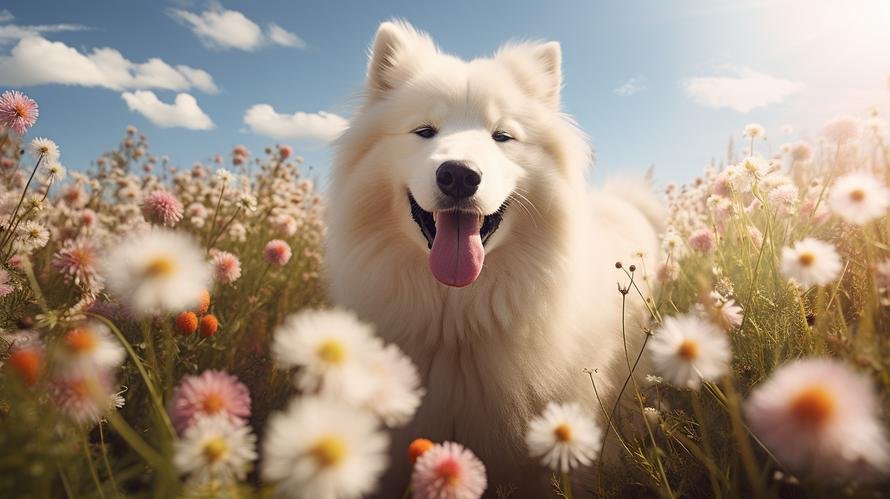Samoyeds, dogs that look quite similar to enthusiastic balls of cloudy fluff, have an interesting history that may surprise you. Picture hardy sled dogs pulling heavy load across frigid Siberian landscapes. That’s right. Underneath the cloud of fur is a dog that was bred to work in some of the harshest environments. But don’t let that tough history fool you into thinking that Samoyeds are dangerously fierce animals. In fact, these dogs have an impressive lineage that stretches back over a thousand years – and it’s one filled with camaraderie and cooperation with humans rather than aggression.
Known for their cheerful, friendly, and sociable nature, Samoyeds have been pivotal in the nomadic life of the Samoyede people from whom they get their name. The Samoyeds not only performed tasks like pulling sleds but they were also family members – keeping children warm during the divine lights of the icy Siberian nights. Such a partnership requires a certain level of trust, proving just how warm-hearted these dogs are.
Though often regarded as giant breeds that can weigh up to 65 pounds, Samoyeds are dangerous only if they charge towards you at full speed out of pure love! They are incredibly loyal to their families and are eager to greet strangers with enthusiastic dog kisses. The word ‘dangerous’ is not found in a Samoyed’s dictionary.
Now, you might ask, “But what if my Samoyed becomes aggressive?” An aggressive Samoyed is a rare sight to behold and it’s often a sign of a deeper, underlying problem. Rather than inherent nature, a Samoyed’s aggression is likely due to factors like inadequate socialization, lack of training, physical discomfort, or even fear. Here’s the bottom line – Samoyeds, much like humans, are a product of their upbringing. With proper care, attention, and training, they can be the merry and pleasant dogs they were bred to be.
Have you ever heard that dogs are similar to their owners? It’s not an old wives’ tale. Dogs learn from their humans. Start training your Samoyed puppy with basic commands like sit, stay, and down to instill discipline. Spend quality time daily for training sessions, but keep them short and fun. Positivity is the key. Using harsh disciplinary methods will lead to fear, reducing your dog’s trust in you.
Socialization is also critical for your Samoyed’s temperament. Make sure your puppy is exposed to various surroundings, people, and animals. Gradually, your fur buddy will learn to be at ease in different environments, reducing anxiety and fear-induced aggression.
Although Samoyeds aren’t a dangerous breed, their size and high energy levels can potentially become a handful, especially for first-time dog owners. Therefore, exercise plays an essential role. Daily walks, runs, and playtime will ensure your Samoyed remains healthy and happy. Imagine having pent-up energy with no place to let it out – it won’t end well, not for you or for your dog.
Remember, you’re the apple of your Samoyed’s eye. A neglected Samoyed can develop behavioral issues. Regular interaction, love, and attention will ensure that your dog is mentally satisfied.
Inadvertently, Samoyeds might pose some risk to individuals with allergies. Their thick double-coat sheds profusely, especially during spring and fall. Regular grooming can manage this issue, but it’s essential to note for people with severe allergies.
By and large, the narrative of the ferocious dog breed is a much-contested one. While certain breeds might have a higher propensity for aggression, it largely boils down to individual dogs and their specific circumstances. Samoyeds, despite their imposing size, are living proof of this. Bred for companionship, they continue to bring joy, and not danger, to families worldwide.
The next time you encounter a Samoyed, rather than cringing back in fear, perhaps extend a hand for a friendly pat. You might just make a new fuzzy friend who’ll greet you with cheerful yaps and a wagging tail. After all, in the dog world, that’s the equivalent of a glowing five-star review. If love had a physical form, it would be a bouncy, lovable Samoyed!



